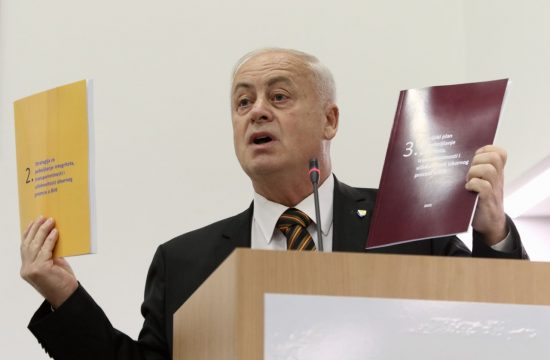Cancer patients from Serbia will file charges against NATO member states for using ammunition with depleted uranium during the 1999 air campaign against the country, saying it has caused their illness, an association has announced on Monday.
The president of the “Depleted Uranium” association Sveto Nogo said the first charges would be filed in September or October.
Nogo told the Conference on the consequences of NATO bombing with the depleted uranium enriched ammunition held in the southern city of Nis, that the lawsuits would be filed individually or by the family members of those who developed cancer they believed was caused by the bombing.
“We will sue NATO member states for both material and immaterial damages. We will start with charges against five countries,” he said, adding that after the end of the Conference they would name those countries.
The two-day conference gathered about 30 local and international legal, medical technical, atomic physic and ecology experts.
Nogo said that Serbia’s, Belgrade's and Nis’ bar associations supported the “project.”
“The number of cancer patients is on the rise, and even children are born with cancer. We do not recognise ‘vis major’, and as intellectuals, we are not going to keep our mouth shut,” he said.
A lawyer Srdjan Aleksic, the president of the Conference Organisational Board, said that Serbia’s people could benefit the most from an Italian court ruling that confirmed the link between the depleted uranium and the diseases diagnosed in troops who served in Kosovo.
Aleksic said that would be crucial evidence before the national courts of the NATO countries Serbia’s patients would sue.
He said that the soldiers or the families of those who died were compensated with the amount from 200,000 to 500,000 Euros.“We will seek the same sum for our patients.”
Aleksic pleaded for an off-court settlement because, as he put it, if the Italians got the compensation why should not the people in Serbia.
Serbia’s Parliament launched a probe into the effects of NATO bombing and the damage abridgedly caused by using the depleted uranium.
Both NATO and a 2001 UN Environment Programme report said that sites with depleted uranium pose no significant health risk.
The Alliance bombed the then SR Yugoslavia from March to June 1999 over what the international community said was Belgrade oppression of ethnic Albanians in Kosovo.




